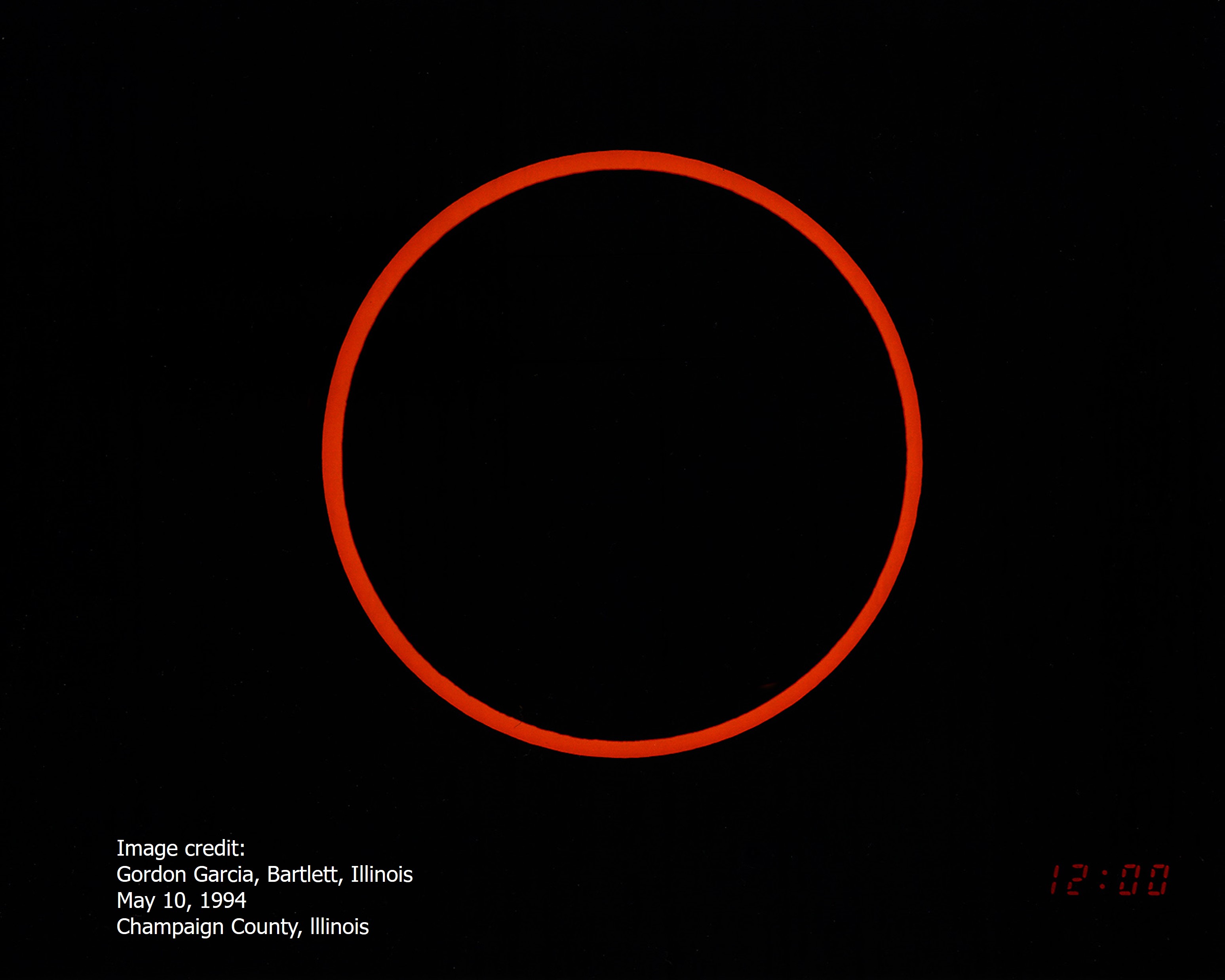News Release

Gordon Garcia
|
Subscribe
|
Contact: Bradley Mills, 775.234.7523
On Saturday, October 14th, beginning at 8:07am and lasting for about three hours, Great Basin National Park will have the good fortune of occupying prime astronomical real estate. An Annular Solar Eclipse is a rare event. The next one in the United States will not occur until 2041, making this quite possibly a once-in-a-lifetime experience.
Great Basin National Park will be in the path of annularity, meaning that for a few minutes the only visible part of the sun will be a ring of fire squeezing past the edges of the moon. It’s this brilliant ring which differentiates an Annular Solar Eclipse from a Total Solar Eclipse.
The timeline for the eclipse is as follows:
-
8:07am - The eclipse begins.
-
9:24am - Beginning of full annularity.
-
9:26am - The eclipse is at its peak, with the moon blocking the sun to its maximum extent.
-
9:28am - End of full annularity.
-
10:53am – The eclipse concludes.
Please visit our site at 2023 Annular Eclipse - Great Basin National Park (U.S. National Park Service) (nps.gov) for more information on the eclipse and related activities within the park.
Best viewing areas within the park: Free eclipse glasses will be available at either visitor center. Some recommended viewing areas include the Astronomy Amphitheater near the Lehman Caves Visitor Center as well as the Great Basin Visitor Center in the town of Baker. The Baker Archeological Site, just a few miles northeast of Baker, would also be a good choice for eclipse viewing.
Parking: Great Basin National Park is expecting large crowds, so if you come to the park please arrive with an abundance of patience. Overflow parking will be available at the Great Basin Visitor Center and the Historic Ranger Station, both in Baker, NV. Visitors may also find additional parking at the Astronomy Amphitheater just northeast of the Lehman Caves Visitor Center, inside of the park. Expect all parking areas within the park to fill up quickly. Parking will not be permitted along roadsides, on vegetation or other non-developed areas.
Camping: Pack your patience, camping will be severely limited due to the expected number of visitors this weekend. While there will be four first-come-first-served campgrounds open in the park, they will likely fill up, and fill up early. Upper Lehman Creek and Baker Creek campgrounds will be the preferred campgrounds for many with sixty campsites between the two. Grey Cliffs (Loop A) is a tents only area with six available sites. Lower Lehman Creek Campground will temporarily open for the nights of the 13th through 15th, then close again so planned maintenance and rehab may continue. Designated primitive sites are available on Snake Creek Road in limited numbers.
Fortunately, Great Basin National Park is surrounded by federal public land, available for free dispersed camping to anyone, but come prepared. For advice on dispersed camping on public land, please see a ranger at the Lehman Caves Visitor Center or the Great Basin Visitor Center.
Camping within the park is permitted only in purchased sites at developed campgrounds, or in the backcountry with a permit. Please see a ranger at either the Lehman Caves Visitor Center or Great Basin Visitor Center to inquire about backcountry camping. Overnighting in a vehicle or tent in parking lots, roads or at trailheads is not permitted.
No Lehman Caves tours in the morning: In order that park staff can also enjoy this rare stellar event, Great Basin National Park will not be conducting Lehman Caves Tours during the morning of October 14th. Without a reservation for an afternoon tour it will be best to arrive not expecting a tour of the cave.
Respect Private Property: Don’t forget, there’s a seemingly endless expanse of high desert which would make for great viewing areas, allowing for visitors to experience the eclipse in solitude. Please respect private property dispersed throughout this largely public landscape. Be on the lookout for and adhere to posted private property and no trespassing notifications.
For more information on the eclipse and related activities within the park, please visit our site at https://www.nps.gov/grba/planyourvisit/2023-annular-eclipse.htm
www.nps.gov
About the National Park Service. More than 20,000 National Park Service employees care for America’s 425 national parks and work with communities across the nation to help preserve local history and create close-to-home recreational opportunities. Learn more at www.nps.gov.
Last updated: October 6, 2023
